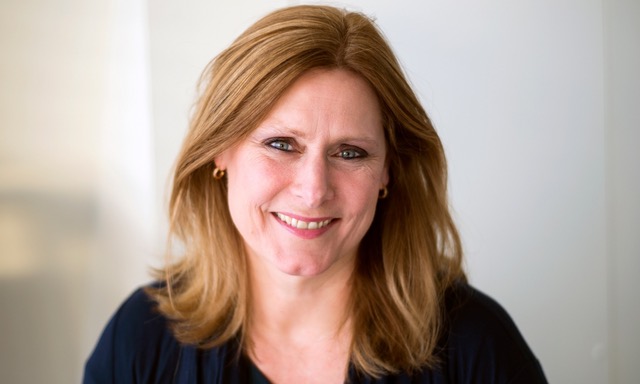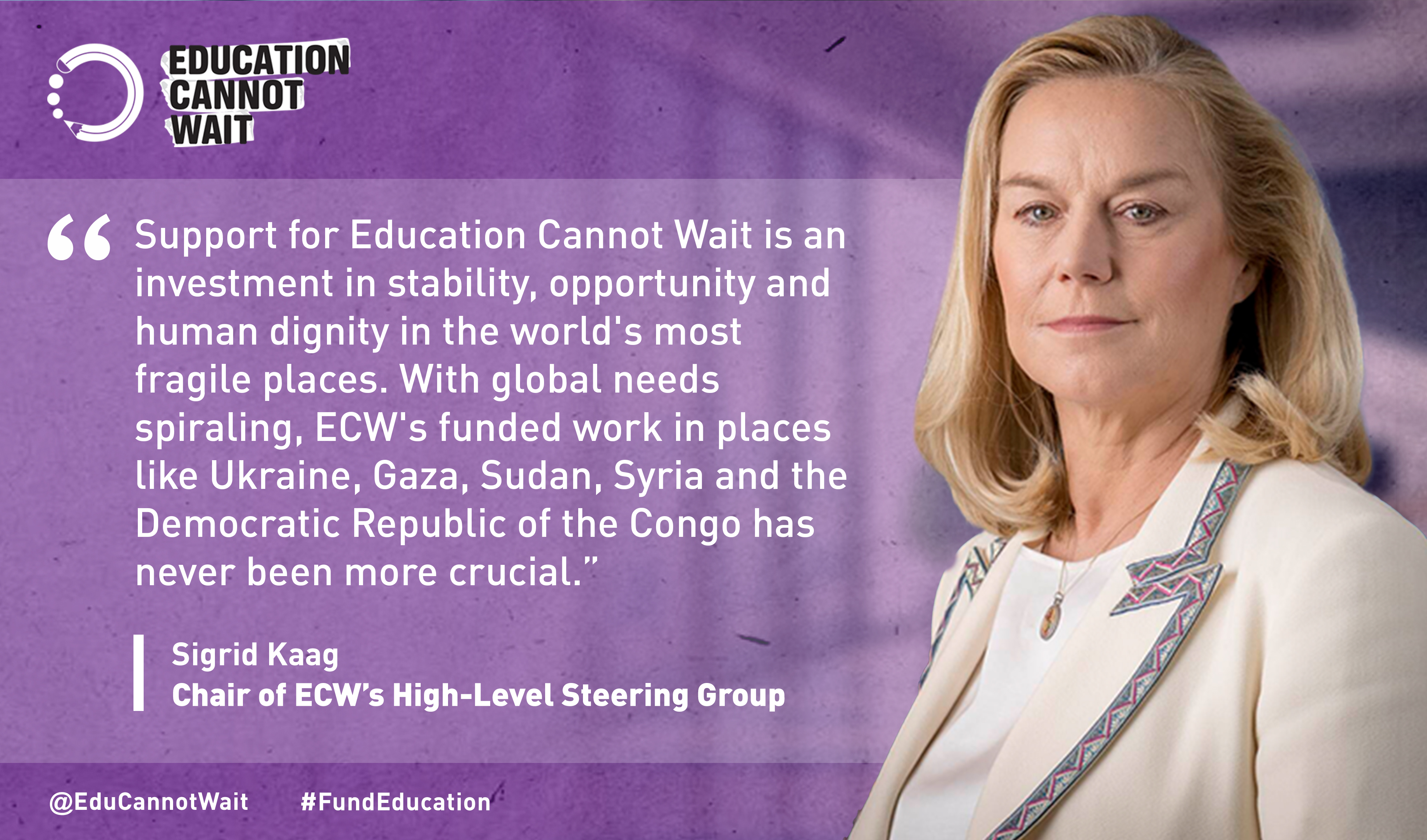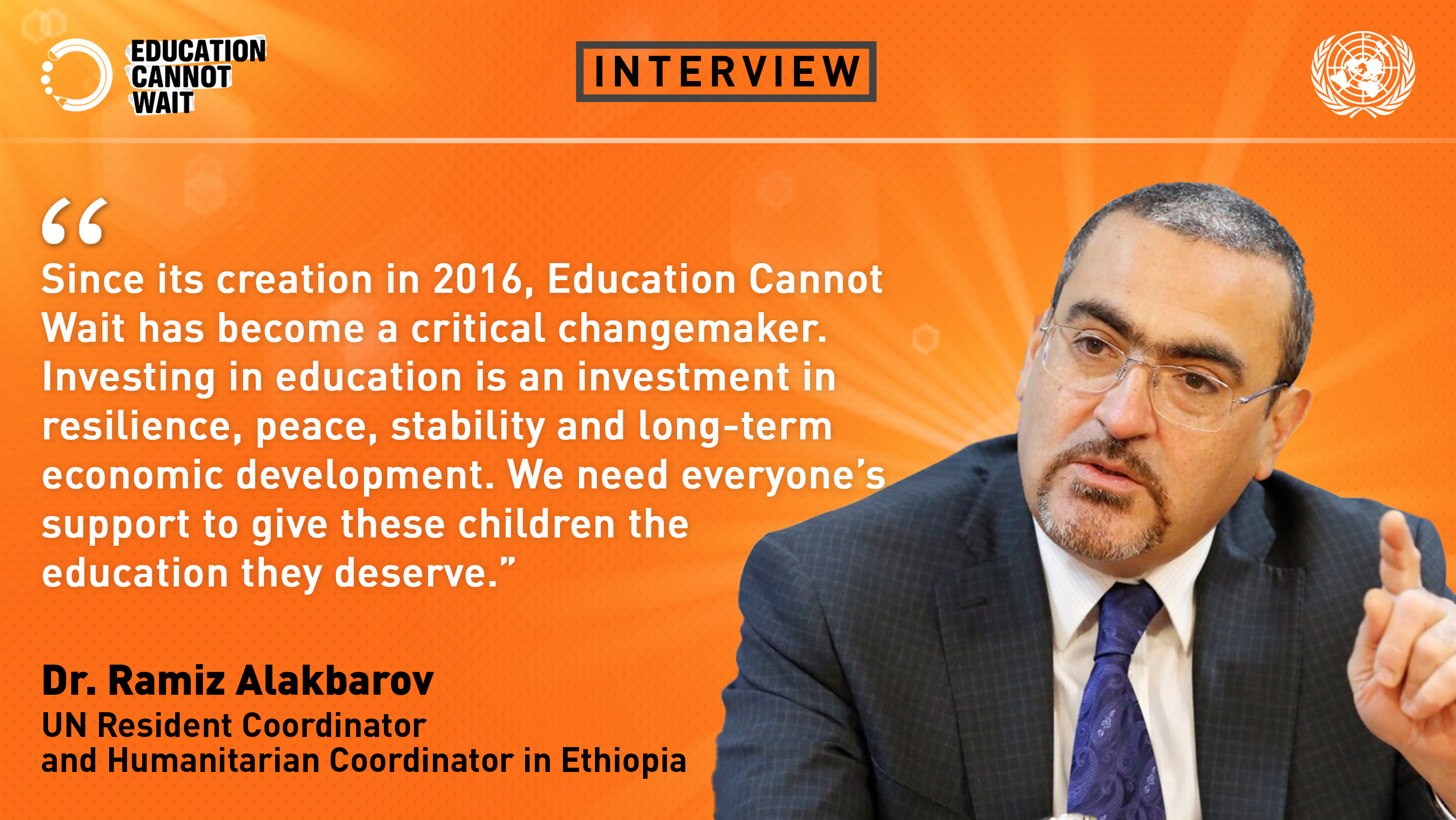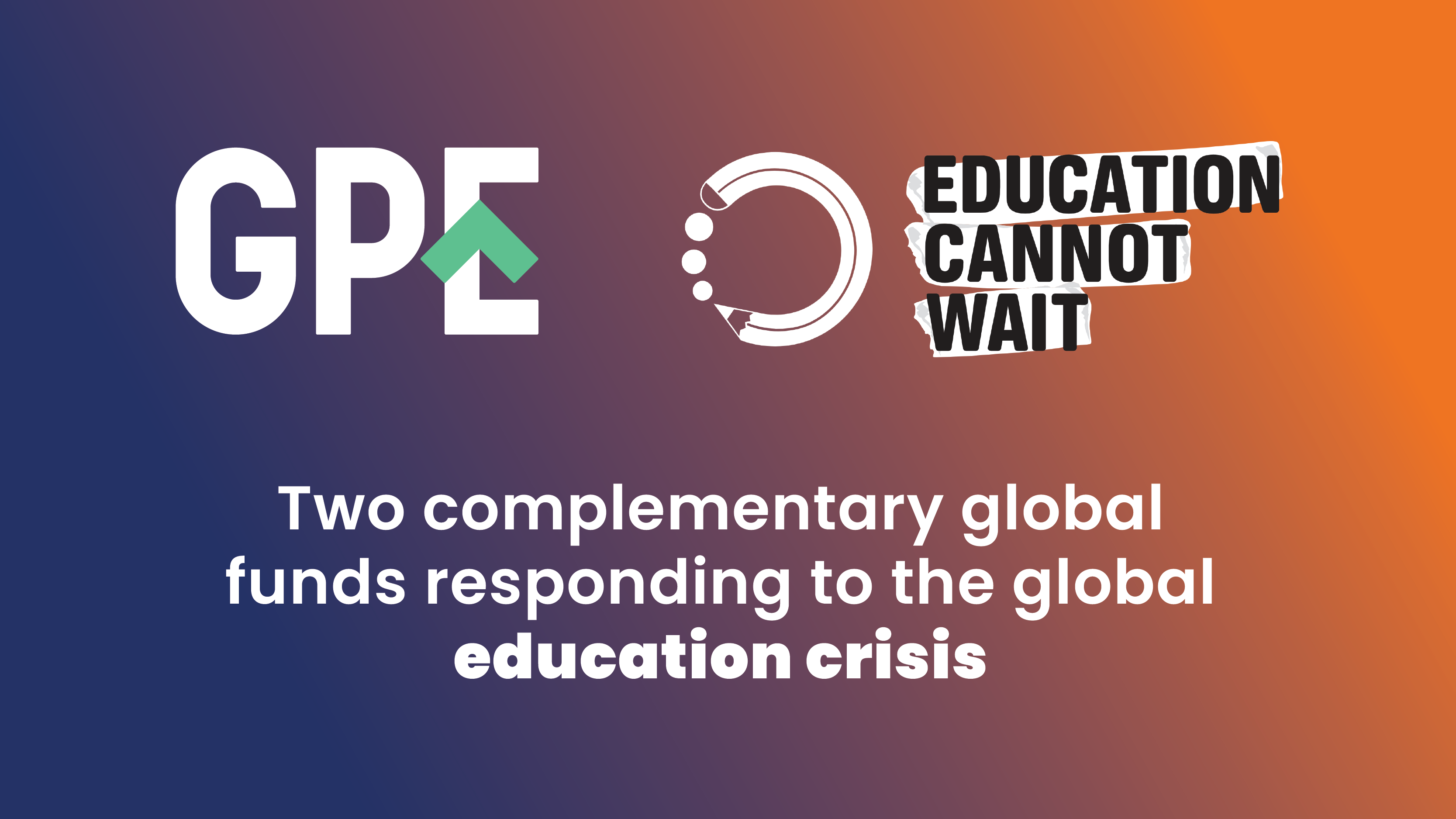‘Education Is at the Heart of Young People’s Future, Their Communities and Our Planet’ – Sarah Brown, Chair Theirworld & Executive Chair, Global Business Coalition for Education
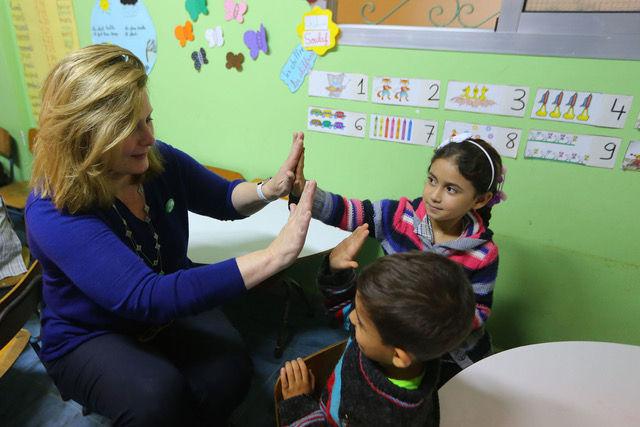
Global education advocate Sarah Brown explores priorities for education in crisis and a new report on safe schools and learning environments
Sarah Brown is a passionate advocate for global education and health issues. One of the true leaders in advocating for improved resource mobilization to reach the 75 million children and youth living in crisis today that need support in accessing safe and reliable education, Sarah’s work brings together the worlds of business, philanthropy, social media and charity campaigning.
She is the Chair of the children’s charity Theirworld and Executive Chair of the Global Business Coalition for Education. At the nexus of humanitarian relief, development and private-sector engagement, Sarah’s work through Theirworld and other charities is paving the way to mobilize more funds for the girls and boys living in the midst of war, conflict and protracted crisis that need immediate and lasting support to ensure no one is left behind in our global efforts to provide inclusive and equitable education for every child on earth by 2030.
Sarah has been a long-time champion for Education Cannot Wait. We caught up with the education luminary to get her perspectives on education in emergencies, lessons learned from the new Theirworld report ‘Safe Schools: The Hidden Crisis,’ the need for partnerships and a number of related topics.
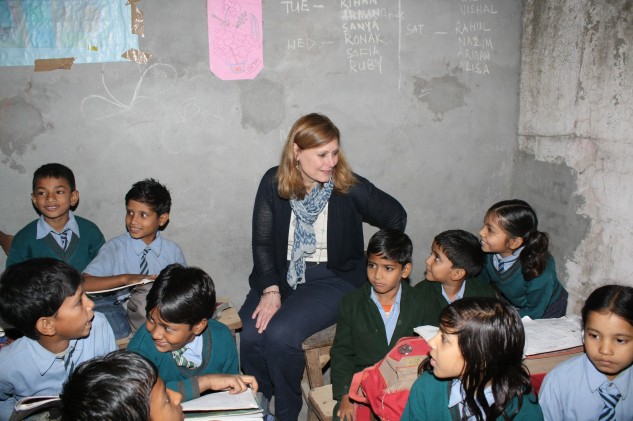
Can you tell us why education in emergencies and crisis must be a priority for the international community to advance gender-equality, the SDGs, peace and stability?
SB: Education is at the heart of young people’s future, their communities and our planet – and never more so than for those caught up in crises rarely of their own making.
Theirworld has just completed a eye-opening report on safe schools and learning environments which underscores the scale of the challenge, and highlights exactly what we can do about it. In 2030, one-third of all school age young people will live in countries affected by conflict, humanitarian disaster and violence. And shockingly, 75 per cent will not have the most basic skills required for employment. That means the vast majority of young people living in emergencies will be left behind and without hope for a brighter future. That is why education in emergencies is so important.
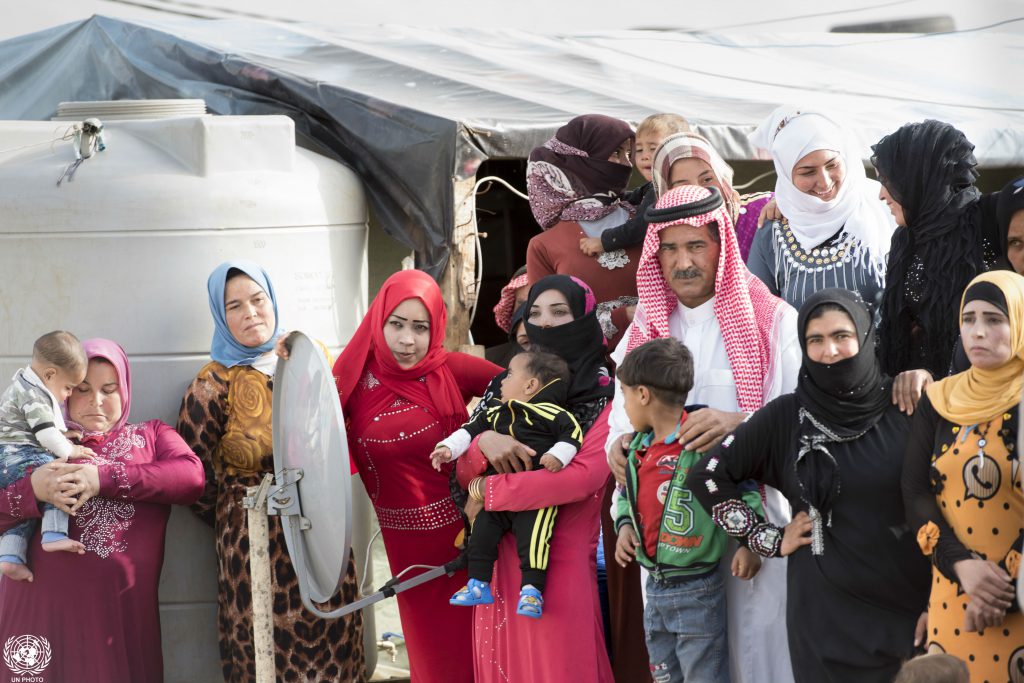
Why was Education Cannot Wait created and how did the Global Business Coalition for Education and Theirworld contribute to make it a reality?
SB: Education Cannot Wait was the positive response to the void in the global architecture of financing for education in emergencies. The history of humanitarian relief has been to act to deliver to short-term needs – food, shelter, emergency medical support – but there was no plan for education. Now that it is the norm for a crisis to last years and not just weeks or months, we need to offer education in emergency situations with a bridge to the future.
As much as development organizations wanted to help they were unable to work with the speed needed in an emergency — and most are not able to operate in some of the countries where the largest numbers of refugees were living. This means that children were waiting years before education was funded and deprived of all hope.
I remember when Theirworld published a report a few years ago laying out the plan for delivering education to Syrian refugees in Lebanon. We had all of the major actors in the room — but there was no one capable of delivering the plan despite the willingness to help. That became the basis for the Lebanon RACE initiative — which started a new way of working between partners to deliver education in emergencies.
It was immediately clear at that point that we needed to create something to deliver education in emergencies with humanitarian speed and development depth wherever it is required in the world. We were hearing strong messages from Theirworld’s cohort of Global Youth Ambassadors that this was a top priority — so we put our energy and resources into a campaign to create a new fund specifically for education in emergencies.
At the start, it wasn’t the most popular idea to campaign for (too difficult, too dangerous, too different- the Global Youth Ambassadors heard it all) but today, one million of young people are being given a chance at education because we all came together and stood up for the most marginalized children and youth.
At Theirworld we also wanted to make sure the business community plays its part to deliver free, quality education as a valued partner. So we made a pledge to bring business behind Education Cannot Wait. We helped ensure there was a business representative on the High-Level Steering Group and then really focused on how to make practical use of business assets to solve challenges alongside governments, international organizations and delivery NGOs.
Julie Cram of USAID and Justin van Fleet of the Global Business Coalition for Education, an initiative of Theirworld, are chairing the group which has made significant progress on private-sector engagement in support of Education Cannot Wait — with both practical examples of progress as well as the innovative thinking that seeks out the high-hanging fruit of real, lasting improvements.
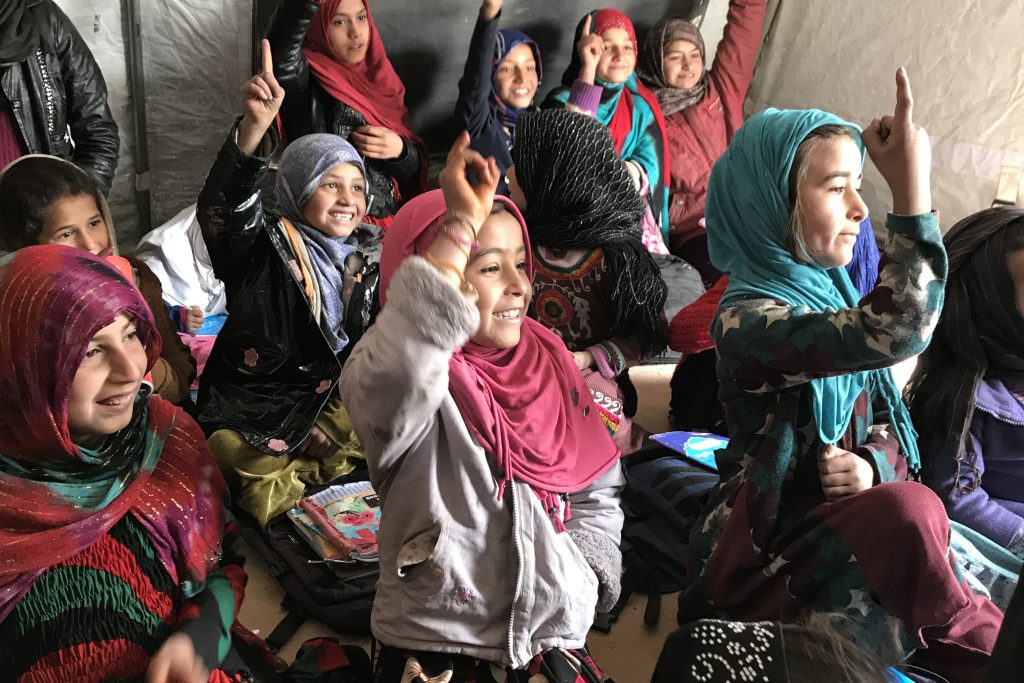
Can you explore why Education Cannot Wait’s model is promising in making a difference on the ground, and the progress thus far.
SB: What I admire about ECW is that it is operationally based on results. I am also astonished (in a good way) on its speed of delivery. It truly lives up to its name: Education Cannot Wait.
Education is a human right and the passion and creativity with which Education Cannot Wait is operating is impressive. At times, people heads spin a bit because it is such a new way of working — but that is what we need if we are to achieve SDG 4.
The multi-year programs — which are now crowding in funding in Afghanistan, Bangladesh and Uganda — are basically replicating and improving on Lebanon’s RACE model in the various emergency contexts and building a bridge to development while protecting development funding.
I could not be prouder of Theirworld’s role in pushing for the innovation for Syrian refugees education in Lebanon, and now seeing this same idea replicated in other parts of the world welcoming in refugees fleeing from conflict and seeking education for the children. We often both say that our organisations are full of ‘next generation actionists’ and these new programmes are the proof of that.
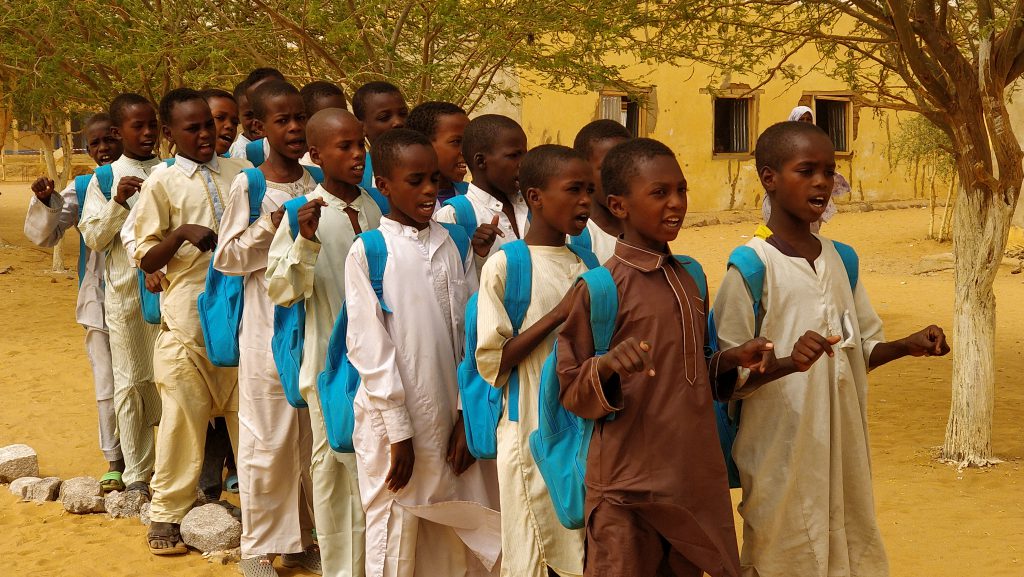
Please help us explore the importance of partnerships with Education Cannot Wait, including development donors, humanitarian donors as well as the private sector and foundations.
SB: Partnerships lie at the core of all success stories in the humanitarian world – to deliver education in emergences as rapidly and successfully as Education Cannot Wait, partnerships are needed with donors of all kinds from governments to philanthropists to business.
In Theirworld’s new Safe Schools report, we set out three categories to help actors identify interventions that reflect their areas of interest, organisational objectives, and comparative advantages – and they are immediately relevant to Education Cannot Wait:
1. Prioritise safe schools and learning environments in organisational and government policies
2. Invest in safe schools and learning environments by ensuring adequate financing is available and supports best practice
3. Deliver results for children and youth through safe schools and learning environment programming which scales up best practice through direct engagement with affected communities
At the Global Business Coalition for Education, the new REACT platform with private sector and foundations is being developed to map out who can deliver what, where and how fast for education in an emergency. This exists to work with Education Cannot Wait projects and is a great example of partnership in rapid action.

Any other points and messages you would like to make?
SB: Like all good action plans, this approach to delivering education in emergencies is rooted in the philosophy that only through next-generation partnerships, and working together in non-traditional ways, can we collectively rise to the challenge of creating a greater impact for the next generation and to enable children to reach their full potential. At Theirworld we stand by that, and are privileged when we work with Education Cannot Wait that we find a like-minded partner.
